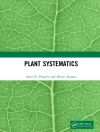Bioinformatics is an integrative field of computer science, genetics, genomics, proteomics, and statistics, which has undoubtedly revolutionized the study of biology and medicine in past decades. It mainly assists in modeling, predicting and interpreting large multidimensional biological data by utilizing advanced computational methods. Despite its enormous potential, bioinformatics is not widely integrated into the academic curriculum as most life science students and researchers are still not equipped with the necessary knowledge to take advantage of this powerful tool. Hence, the primary purpose of our book is to supplement this unmet need by providing an easily accessible platform for students and researchers starting their career in life sciences. This book aims to avoid sophisticated computational algorithms and programming. Instead, it mostly focuses on simple DIY analysis and interpretation of biological data with personal computers. Our belief is that once the beginners acquire these basic skillsets, they will be able to handle most of the bioinformatics tools for their research work and to better understand their experimental outcomes.
Unlike other bioinformatics books which are mostly theoretical, this book provides practical examples for the readers on state-of-the-art open source tools to solve biological problems. Flow charts of experiments, graphical illustrations, and mock data are included for quick reference. Volume I is therefore an ideal companion for students and early stage professionals wishing to master this blooming field.
สารบัญ
Introduction to biological data.- Computers and bioinformatics.- Sequence biological databases.- Biological databases.- Other biological databases.- Nucleic acid sequencing.- Tools and methods in analysis of simple sequences.- Tools and methods in analysis of complex sequences.- Structural bioinformatics.- Protein structure annotations.- Introduction to functional bioinformatics.- Biological networks – tools, methods and analysis.- Metabolomics.- Drug discovery: concepts and approaches.- Drug designing methods and analysis.- Molecular molecular docking.- Insilico pcr.- Modeling and optimization of molecular bio-systems to generate predictive models.- Index.
เกี่ยวกับผู้แต่ง
Noor Ahmad Shaik (Ph D) is an academician, researcher and technologist working in the field Human Molecular Genetics. Over the last 15 years he has been working with different research groups whose fundamental focus is to offer genetic disease diagnostics, management and therapy. He is interested in discovering the novel causal genes/biomarkers for rare hereditary disorders and also to understand the effect of mutations on structure and function of causal proteins of human diseases. He has already published 42 research publications in reputed international journals of human genetics and bioinformatics. He is currently working to improve the current mutation prediction methods through integrative computational algorithms, so that clinicians and scientists can better understand the functional relevance of genetic mutations to disease. He has been a recipient of several research grants from national and international funding agencies. He is currently rendering hiseditorial services to world renowned journals like Frontiers in Pediatrics and Frontiers in Genetic Disorders.
Dr. Khalid Rehman Hakeem (Ph D) is an Associate Professor at King Abdulaziz University, Jeddah, Saudi Arabia. He has completed his Ph.D. (Botany) from Jamia Hamdard, New Delhi, India in 2011. Dr. Hakeem has worked as Post Doctorate Fellow in 2012 and Fellow Researcher (Associate Prof.) from 2013-2016 at Universiti Putra Malaysia, Selangor, Malaysia.His speciality is Plant Eco-Physiology, Biotechnology & Molecular biology, Plant-Microbe-soil interactions and Environmental Sciences and so far has edited and authored more than 25 books with Springer International, Academic Press (Elsevier), CRC Press etc. He has also to his credit more than 120 research publications in peer reviewed international journals, including 42 book chapters in edited volumes with international publishers.
Dr. Babajan Banaganapalli (Ph D) works as bioinformatics research faculty at King Abdulaziz University. He initiated and successfully running the interdisciplinary Bioinformatics program from 2014 to till-to date in King Abdulaziz University. He has more than 12 years of research experience in bioinformatics. His research interest spread across as genomics, proteomics and drug discovery for complex diseases. He published more than 40 journal articles, conferences papers and book chapters. He has also served in numerous conference program committees, organized several bioinformatics workshops, trainings programs and act as editor and reviewer for various international genetics/bioinformatics journals. Recently he was honored as young scientist for his outstanding research in bioinformatics by Venus International Research Foundation, India.
Dr. Ramu Elango (Ph D) is a well experienced molecular geneticist and computational biologist with extensive experience at MIT, Cambridge, USA and Glaxo Smith Kline R&D, UK, after completing his Ph.D. in Human Genetics at All India Institute of Medical Sciences, New Delhi, India. At Glaxo Smith Kline, he contributed extensively in many disease areas of interest in identifying novel causal genes and tractable drug targets. Dr Ramu Elango presently heads the Research & Laboratories at the Princess Al-Jawhara Center of Excellence in Research of Hereditary Disorders, King Abdulaziz University. His research focus is on genetics and genomics of complex and polygenic diseases. His team exploits freely available large scale genetic and genomic data with bioinformatics tools to identify the risk factors or candidate causal genes for many complex diseases.












